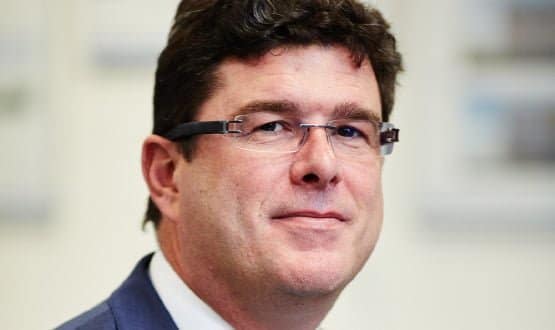Cowper’s Cut 314: NHS England’s Bruce Forsyth era

The current stupid-off between Victoria Atkins, Health But Social Care Secretary For Nine More Long Months, and NHS England must be a bet for heroically high stakes.
As I noted last week, SOS Atkins set the bar very high indeed with her ‘M&S NHS’ speech at the Nuffield Trust Summit.
‘Hold my beer’, NHSE replied. And with aplomb (possibly with several plombs), everybody’s favourite former Commissioning Board enters its Bruce Forsyth era, circa ‘Play Your Cards Right’. “What do points make? PRIZES!”

NHSE’s FD Julian Kelly and deputy COO Sarah-Jane Marsh were unwise enough to put their names to this extraordinary letter to the service.
Dated 12 March, this extraordinary epistle announces “three other routes through which trusts will be eligible for additional capital funding in 2024/25:
- The 10 trusts delivering the highest level of 4-hour performance during March will each receive £2 million.
- The 10 trusts who deliver the greatest percentage point improvement in March (compared to January 2024 performance) will each receive £2 million.
- The next 10 trusts who deliver the greatest percentage point improvement in March (compared to January 2024 performance) would each receive £1 million.
… Trusts who have already qualified for capital through the original incentive scheme will not be eligible to receive further funding through these additional mechanisms.
“However, it would be possible for a single trust to qualify for a maximum of two of the three capital awards above (that is, to be both one of the best performers nationally having achieved this through the greatest performance improvement), meaning the maximum award could be £4 million”.
All this and new stupid, bound-to-fail incentives to improve performance mid-month in a futile attempt to rescue Amanda Pritchard’s career as NHS England chief executive too.
What a Brucie Bonus!
These are NHS England’s attempts to affect March 2024’s 4-hour A&E performance data.
Being made in mid-March 2024.
Mmmmmmmmmmm.
I choose my words carefully: this is an attempt to imrpove the performance data. It is not an attempt to improve performance.
Meanwhile, most of NHS England feels that it can do nothing without explicit ministerial approval.
Amanda Pritchard may be in office as NHSE’s chief executive, but she is certainly not in power. Only doing blatantly ridiculous things that are stupid and won’t work in a doomed attempt to save Amanda Pritchard’s career can save us now.
Tory mega-donor Frank Hester: Phoenix, meet ashes

To give the Conservative And Unionist Party tens of million pounds when they are huge, odds-on favourites to get absolutely smashed by the electorate’s verdict at the next General Election is, erm, a fascinating sign of political judgment.
However, that is by far not the most stupid thing that racist misogynist and chief executive of The Phoenix Partnership (TPP) Frank Hester has been caught out doing, as The Guardian revealed this week: “The Guardian has learned of a 2019 meeting at TPP’s headquarters in which Hester spoke about an executive from another organisation, saying: “She’s shit. She’s the shittest person. Honestly I try not to be sexist but when I meet somebody like [the executive], I just …
“It’s like trying not to be racist but you see Diane Abbott on the TV and you’re just like, I hate, you just want to hate all black women because she’s there, and I don’t hate all black women at all, but I think she should be shot.
“[The executive] and Diane Abbott need to be shot. She’s stupid … If we can get [the executive] being unprofessional we can get her sacked. It’s not as good as her dying. It would be much better if she died. She’s consuming resource. She’s eating food that other people could eat. You know?”
TPP are best-known in the NHS for being the major supplier of GP data systems that is not EMIS (which is now owned by Optum). Over the last year of declared declarations, Mr Hester gave the Conservative And Unionist Party its largest donations ever, already totalling £10 million (see below for further details).
I was unaware of Hester’s reputation in the NHS digital community as an arsehole of epic proportions. The Glassdoor reviews of Hester as the boss of TPP are remarkably consistent, and consistently remarkable.

The sector’s leading publication Digital Health reports the matter even-handedly here. Its chief executive and editor Jon Hoeksma took a commendably principled position, saying “Digital Health will no-longer be working with TPP while Frank Hester is at the helm”.
That will clearly cost Digital Health money (TPP was a sponsor of this week’s ‘Digital Health Rewired’ conference in Birmingham), but Jon is smart to realise that there are considerably more important things in life.

In a classic ‘ooops!’ moment, Cat Neilan of Tortoise revealed that the Conservative And Unionist Party is now sitting on a further £5 million donation from Mr Hester.
Choices and consequences
There are important issues for those who have contracted with TPP (including OpenSafely) to consider.
Members of the reality-based community will recognise that Mr Hester’s efforts to downplay his remarks about Diane Abbott as “rude” are an absurdity. His reported words were, “it’s like trying not to be racist but you see Diane Abbott on the TV and you’re just like, I hate, you just want to hate all black women because she’s there, and I don’t hate all black women at all, but I think she should be shot”.
It is clear that Mr Hester’s ownership of TPP means that he faces no pertinent internal challenge to his unarguably misogynist and racist views. Therefore if he is to face meaningful challenge, it will have to be external.
Over to those who use this supplier.
Waits and measures
This week saw the latest set of RTT data on NHS performance in England. There was a small fall in the overall size of the RTT list from 7.6 million in December to 7.58 million in January 2024: a drop of 27,800.
18-month waits rose from the previous month’s data. 14,013 people were waiting more than 18 months (78 weeks) for treatment in January (up from 13,164 in December).
92,213 were waiting for more than 15 months: a slight improvement by 6,000 on the December 2023 figures.
Category 2 ambulance average response time for February 2024 was 36 minutes and 20 seconds (against the thirty-minute target for 2023/24). This is better than January 2024, where it was 40 minutes and 6 seconds.
70.9% of patients were admitted, transferred or discharged from A&E departments within four hours in February, up on the 70.3% in January (but worse than the 71.5% in February 2023).
In January 2024, 70.9% of cancer patient were told they had cancer or had it definitively ruled out within 28 days (this was down from 74.2% in December 2023). This is against the target of 75%. 62.3% of people treated began their first definitive treatment of cancer within 62 days of an urgent suspected cancer.
At the end of January, I estimate there are 27,199 patients on the RTT wait list, who are NOT currently on a cancer pathway (or protected by the cancer wait time targets) but when they eventually get their diagnosis after typically a lengthy wait it will be cancer #nhswaits
— Rob Findlay @ Insource (@gooroohealth) March 14, 2024
Rob Findlay’s typically excellent analysis for HSJ is here, and focuses on huge increases in waiting times to access mental health care.

The state of the estate

This story in the Sunday Times gave concrete examples from the past week of how national political and system leaders’ joint policy - that of ignoring the ERIC data about the NHS capital and maintenance backlog in the Micawber-meets-Pollyanna hope that ‘something will turn up for the best in this best of all possible worlds’ - is not working out particularly well.
At least we’ll always have the Forty New (If Fictional) Hospitals.
The ST story features the particularly egregious example of the Royal London Hospital’s many defects, which included falling lifts (one of which broke a doctor’s leg), and water leaks.
This was a £6.2 billion, Mott MacDonald-certified Capital Hospitals/Skanska Private Finance Initiative effort: Skanska’s PR bollocks is here; and the names of all the responsible individual officers for Capital Hospitals Ltd are here, courtesy of Companies House.
Here is the Infrastructure Journal’s 2006 write-up.

The Royal London is a PFI hospital. Anyone remember that we were supposed to be paying all this money for risk transfer? Anyone?
The PFI company needs to have the shit sued out of them, clearly.
And frankly, those who have so utterly failed to manage this PFI contract (as also in many other cases elsewhere) should take a long, hard look at themselves: this is our money as taxpayers being misused, because the contract has not been adequately managed.
In this same week, the ceiling of an intensive care ward collapsed onto a patient on life support at the Princess Alexandra Hospital. The trust is part of the Government’s delayed programme for 40 new (if fictional) hospitals, and declared a major incident on Thursday morning, as engineers carried out urgent safety checks and patients were moved to other wards.

The embarrassing nature of this happening so soon in the wake of HSJ’s Henry Anderson’s recent report on the £1 billion raid on 2023-24 NHS capital budgets (to fund pay rises and strike costs) is quite something.
“Good game, good game!”
The solution here is obvious: the trusts in question just need in increase their A&E four-hour performance to 76% for the rest of this month, and then the Government’s and NHSE’s brilliant ‘Brucie Bonus’ scheme (see above) will pay for all the infrastructure repairs that they could possibly eat.
Depressingly if instructively, Dan Neidle’s Tax Policy Associates commissioned some pro bono polling on public attitudes tio increasing NHS funding. This was published alongside this ST piece, and revealed that a majority of those surveyed were against raising tax to provide increased funding for the NHS, and few of those in favour of raising tax willing to pay more than £100 per year.
Their full polling data is here.
The expanded medical associate roles debate
I’ve been rightly challenged about having highlighted the extensive controversy over the expansion of the roll-out and apparent remit of the ‘new’ (they’re not) medical associate roles.
I’m aware that there is a view at senior levels that this issue has been ‘weaponised’ by the junior doctors as parent of their general discontent and specific industrial dispute over pay and conditions. Certainly, there is absolute, festering and I’d say growing resentment among junior doctors that their pay dispute is simply being dragged out, while the consultants have had what looks likely to be a deal with extra money (yep, the extra money that there wasn’t).
I’m also aware that others perceive the motivation of the medical profession in objecting to the new associate roles as being motivated by old-fashioned demarcation-style protectionism.
Many medics’ explicit arguments for the further roll-out of associate roles to be slowed or paused pending significant clarifications and guarantees are based more in what they term concerns about patient safety than the perceived unfairness of associates being able to get onto higher salaries sooner with less training, or of trainee doctors’ training opportunities being reduced or de-emphasised.
This is why we need better workforce planning policy. Introducing new groups of workers without modelling demand for them ends in serious consequences for the system and the workers (nursing associates are clearly being exploited) and causes friction in the existing workforce
— Prof Alison Leary 💙#ProtectNurse (@alisonleary1) March 17, 2024
I am struck that one of the most respected modellers of NHS workforce issues, Professor Alison Leary, has been warning about the risks of these kinds of associate roles for many years.
Anybody who is sensible deplores the personalisation of the argument towards and indeed abuse of individual associate practitioners. That is evidently unhelpful and incendiary.
And I remain firmly of the view that while the basic concept of creating new roles to take pressure and suitable work off doctors, nurses and other clinical professions is sound, its implementation has to enjoy the confidence of those professions.
At present, it seems very clear that this is not the case. It feels ridiculous to need to be re-stating yet again that you can’t be fighting your workforce, but you really can’t.
I offer the following couple of threads from Kiss (formerly Twitter), to try and present a more balanced view of the conversation.
The first is from a departmental clinical lead who first appointed PAs in 2020-21, and is very happy with their contribution.
Yesterday I engaged in a lively debate about PAs brought about as my dept was in the spotlight. As a clinical leader who works in the “department” side of hospital management structure, rather than the “executive” side (or at least straddles the divide), it was eye opening. 1/11
— James Bedford (@james_bedford) March 11, 2024
The second is from a specialty doctor in anaesthetics, who to put it mildly, got trained the hard way.
I work with two qualified AAs who are terrific. Both have extensive healthcare experience and multiple qualifications, and I would be happy to receive an anaesthetic from either of them.
— Rosie C 💙 (@gaswomancometh) March 11, 2024
But I need to put the AA project in context.
Shift work
There are those who claim, loudly and repeatedly, that the issues of these additional professionals’ substitution appropriateness and clinical safety are being exaggerated or weaponised.

Unfortunately for them, the Boris Johnson Fanzine’s Janet Eastham has been committing wilful acts of journalism, which show that NHS England has had to orders hospital to stop using physician associates to cover doctors’ shifts, after this investigation revealed that (contrary to public claims) this practice is indeed widespread.
Ministers and NHS executives have repeatedly claimed that PAs and anaesthesia associates (AAs) are not being used to replace doctors.
— Janet Eastham (@JanetEastham) March 15, 2024
But leaked documents seen by this newspaper found associates on doctors' rotas at 31 hospitals in England.
Despite ministers’ and NHS executives’ repeated claims that PAs and anaesthesia associates (AAs) are not being used to replace doctors, leaked documents seen by Eastham and colleagues found physician associates on doctors' rotas at 31 hospitals.
At 13 of these 31 hospitals, doctors’ work appears interchangeable with those of associates, with the A&E department at St George’s Hospital in Tooting advising that new junior doctors and PAs “can all swap with one another”.
At the Queen Elizabeth Hospital in Woolwich, the investigation found a PA working both on a non-doctor rota and taking a locum shift as a junior medic, which the trust described as a rare last resort “to ensure patient safety”.
In 10 hospitals, it was found that PAs counted towards the minimum safe number of medics on shift. This follows Eastham’s work following up on cases of demonstrable harm caused by PAs.
The RCP’s extraordinary Extraordinary General Meeting
Extraordinary General Meetings are not a thing the Royal College of Physicians holds very often. I believe there have only been three previous ones.
But the vexed subject of physician associate roles meant that we saw one this week.
An unauthorised video of the event is here.
And it was indeed extraordinary.
Next, Dr Read tries to present the results of the survey. It's important to remember that Dr Read has since resigned from his post following the EGM.
— platinumpizza™ (@Xeon4f145d96s1) March 17, 2024
Somehow, they've managed to mess-up even a basic Likert scale survey and clustered the neutrals with the positives! pic.twitter.com/G2DRpdegBx
Survey ‘research’ data that the RCP’s leadership presented to the event lumped together responses that were ‘positive and neutral’ (as opposed to ‘negative’) about the experience of working with PAs, which is about as cardinal an error as you’d think possible.
Expecting to get away with doing this to an audience of RCP fellows is, depending on your position, either spectacular chutzpah or epic stupidity.
Here’s the first slide after the title slide. What do you notice? They jump straight into “methodology”. Students, don’t do this! Start with a RESEARCH QUESTION!! You must be clear what EXACTLY you want to find out, and from whom. Ideally, state some HYPOTHESES. pic.twitter.com/eeAbXVwThj
— Trisha Greenhalgh (@trishgreenhalgh) March 14, 2024
Professor Trish Greenhalgh went after the methodology of their survey hard: she noted that the response rate was less than 18%, and that was by no means the least of its inadequacies.
The RCP’s extensive financial conflicts of interest as regards the physicians associate roles is obvious: the RCP is their putative regulator. These conflicts were not declared in RCP President Sarah Clarke’s BMJ article promoting the PA concept.
As we suspected yesterday, it turns out that the Royal College of Physicians of London has extensive FINANCIAL interests in Physician Associates. This interest was not declared by PRCP @DrSarahClarke when she published her opinion 2 days ago. Perhaps @bmj_latest could add it now? https://t.co/FvivvFNBJQ
— Trisha Greenhalgh (@trishgreenhalgh) March 14, 2024
It’s telling to discover that one of the RCP’s official journals, Future Healthcare Journal, has published a number of articles by Jeannie Watkins, which were relentlessly promoting the PA concept.
Have just come across a very damning erratum for Jeannie Watkins!
— DrInsurgent (@DrInsurgent) March 12, 2024
In the RCP Journal FHJ: pic.twitter.com/43U7AntaVc
Alas, Professor Watkins failed to declare her major financial conflicts of interest as director of the recruitment agency PAs Transforming Health (PATH), with a 10% shareholding in the enterprise. Ooops.
At one point late in the meeting, a question about patient safety from Dr Asif Qasim, who attended in person, was simply ignored by the RCP leaders on the EGM panel.
@RCPhysicians #RCPEGM highlights:
— Roshan Rupra 🦀 (@RupraRoshan) March 13, 2024
1. RCP has financial interest in PAs
2. BMA membership = declaration of interest
3. No evidence that PAs have any negative impact
4. Retired physicians vote, trainees do not
5. Question authority and be ignored (see video)
Truly extraordinary pic.twitter.com/M1oyfZAj1F
That is extraordinary, right enough.
Verdict on tonight’s #RCPEGM will be a damning one. It was a misjudgement of mood, safety concerns, and data. The college position of supporting motions 1-4 but opposing motion 5 is an illogical one. “The pause” may require definition but it demands exploration. A rethink needed.
— Kamran Abbasi (@KamranAbbasi) March 13, 2024
The BMJ’s editor Kamran Abbasi posted on Kiss that the “verdict on tonight’s RCP EGM will be a damning one. It was a misjudgement of mood, safety concerns, and data. The College position of supporting motions 1-4 but opposing motion 5 is an illogical one. ‘The pause’ may require definition, but it demands exploration. A rethink is needed.”
I was deeply honoured to be invited to be a keynote speaker at this year's @RCPhysicians annual conference.
— Dr Rachel Clarke (@doctor_oxford) March 14, 2024
But after last night's #RCPEGM I can no longer, in all conscience, give my speech. I feel duty bound to share in public my reasons why. pic.twitter.com/OWpxNn5xln
Author and palliative care doctor Rachel Clarke (of ITV’s ‘Breathtaking’ renown) issued this letter to the RCP on Kiss (formerly Twitter), in which she declines the previously-accepted offer of a keynote speech at the RCP’s annual conference ‘Medicine 2024’. This is one of those career highlight events for many medics: turning down something like this takes a bit of actual moral courage.
The RCP’s conduct of its EGM has really not helped the situation at all.
Wes Streeting on a fictional character
For reasons, Labour’s shadow health secretary Wes Streeting wrote this Sunday Times piece about fictional character Charlie Fairhead from BBC TV’s long-runnning drama series ‘Casualty’.
He’s retired, apparently. (Charlie, that is: not Wes.)
Recommended and required reading
The Nuffield Trust are launching a series of briefings on ‘What health and care need from the next Government’: the first, on NHS staffing, is very good.
Rethinking Access To General Practice: It’s Not All About Supply is a very useful piece published by the Health Foundation.
Another perspective on primary care access and activity is this blog from the West Midlands Strategy Unit.
Steve Black’s latest ‘Mythbuster’ for HSJ is a fine debunking of the ‘1982 Armstrong privatisation memo’ myth.
Oh.
Julian Patterson’s latest HSJ column takes on SOS Victoria Atkins’ memorable Nuffield Trust speech, and wins.
Vale Jack Wennberg - who first got me thinking about preference-sensitive vs. supply-sensitive practices. One of the true pioneers of value in health care.#unwarrantedvariation pic.twitter.com/U5hB45iSVd
— Andrew Partington (@arpartington) March 15, 2024






